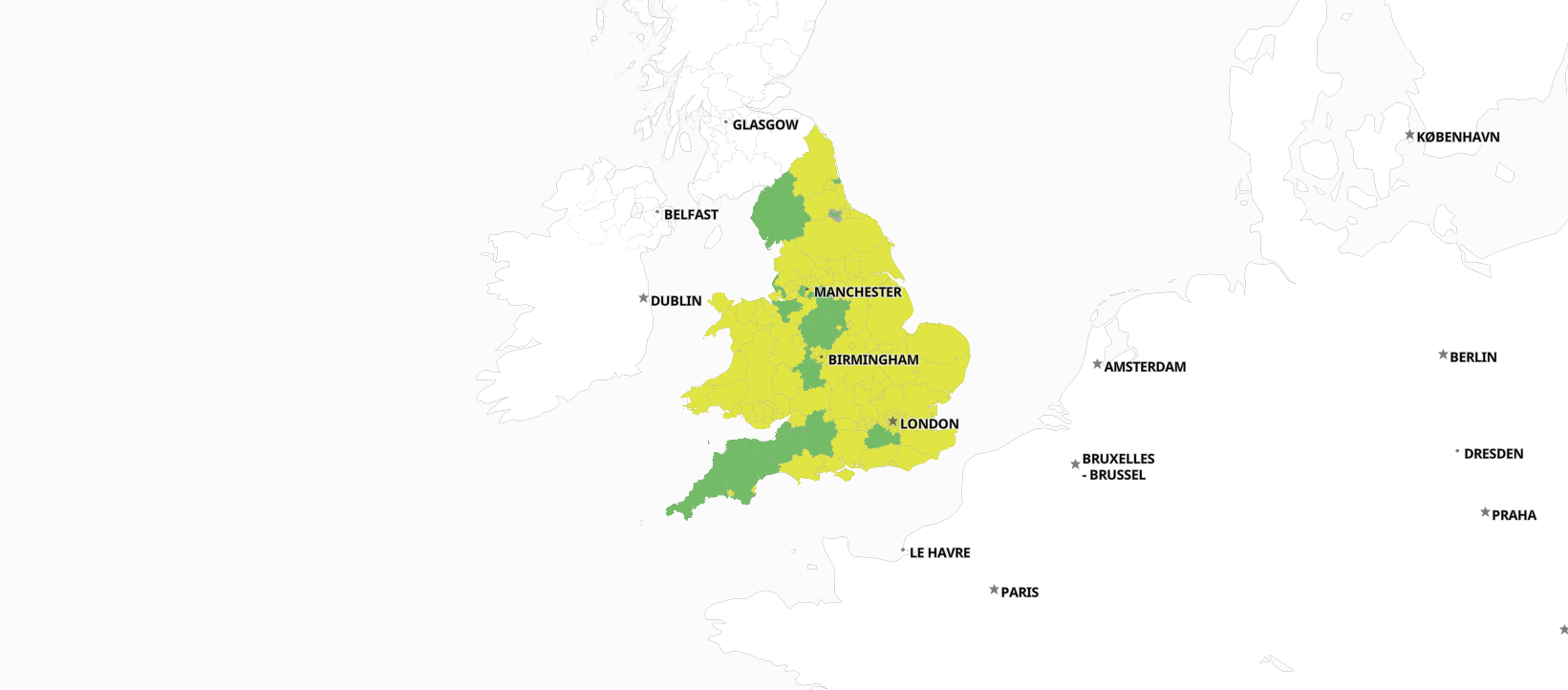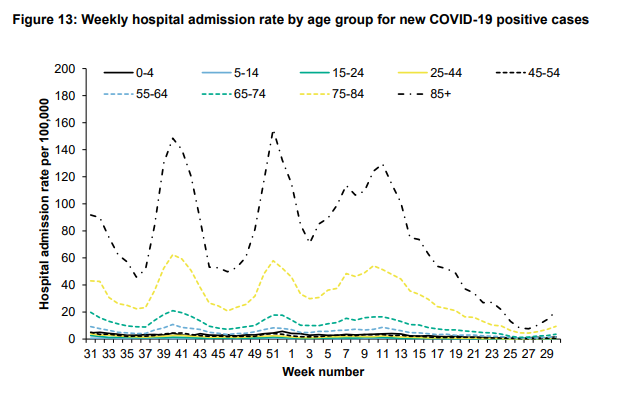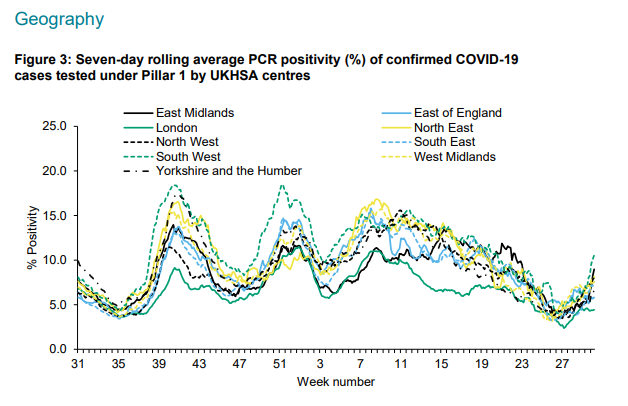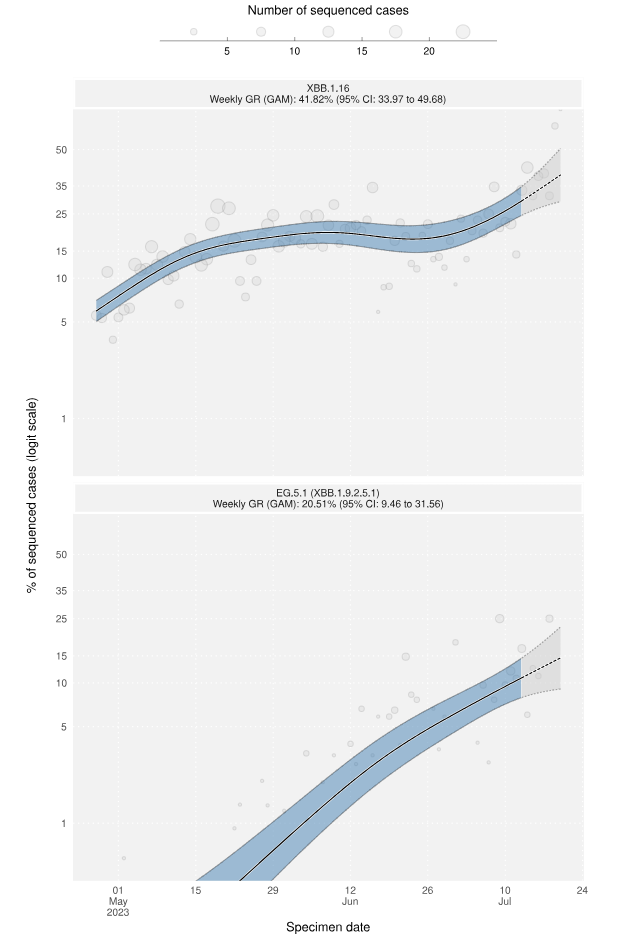UK Covid hotspots revealed as new variant Eris fuels surge in cases
The South-West of England has seen a surge in Covid cases and hospital admissions
With a new Covid-19 variant emerging across the UK, certain areas have seen an increase in cases and hospital admissions on the rise over the school summer holidays.
Named Eris after the Greek goddess of strife and discord, the descendant of the Omicron variant now accounts for as many as one in seven cases after it was first recorded in the UK last month.
The latest data from the UK Health Security Agency suggests that Eris, referred to as EG.5.1, represents 14.6% of all cases, with the World Health Organisation (WHO) adding it to the list of variants under monitoring.

However, health bosses at the UKHSA have said it is “not unexpected” to see new variants of Covid-19, with experts claiming it showed no signs of being more dangerous than previous strains.
This comes as hospital admissions have seen a recent spike, with an increase to 1.97 per 100,000 as of July 30. Data from the previous week recorded the hospital admission rate as 1.47 per 100,000, while those aged over 85 were the highest affected age group.
Hospitals in the South-West of England recorded the highest hospital admission rate, with an interactive map showing a 104% increase in Covid cases in Devon in the seven days leading up to 29 July.
Other Covid hotspots include Surrey, with a 103.3% increase, Derbyshire, with a 121.4% increase, as well as Cornwall, Somerset, Staffordshire, Darlington and Cumbria.
Experts have attributed the recent rise to a number of different reasons, including waning immunity, increased indoor mixing and the possibility that cinema trips to watch Barbie and Oppenheimer have caused the virus to spread.

According to the Zoe Health Study, estimated case numbers jumped by almost 200,000 last month, from 606,656 predicted cases on 4 July to 785,980 on 27 July.
Globally, the new variant Eris accounts for around 20% of Covid cases in Asia, 10% in Europe and seven per cent in North America. Common symptoms include a headache, mild or severe fatigue, a sore throat and a runny nose.
Independent Sage member Professor Christina Pagel told The Independent that she believed the UK is “definitely starting another wave” driven by the Omicron sub variants, Arcturus and Eris.
Sharing the latest Covid data, she said that there had been a 40 per cent jump in hospital admissions last week, with a 28 per cent jump in the number of patients in hospital primarily due to the disease.

However, the numbers overall remain low, with authorities continuing to monitor the situation as infection rates change.
Dr Meera Chand, Deputy Director of UKHSA, said: "It is not unexpected to see new variants of SARS-CoV-2 emerge. UKHSA continues to analyse available data relating to SARS-CoV-2 variants in the UK and abroad.
"EG.5.1 was designated as a variant on 31 July 2023 due to continued growth internationally and presence in the UK, allowing us to monitor it through our routine surveillance processes.”
"Vaccination remains our best defence against future COVID-19 waves, so it is still as important as ever that people come take up all the doses for which they are eligible as soon as possible.’’

Prof Francois Balloux, Professor of Computational Systems Biology and Director, UCL Genetics Institute, UCL, said: “The SARS-CoV-2 Omicron variant emerged nearly two years ago and rapidly became dominant worldwide. It has spawned a very large number of sub-variants constantly replacing other.
“The latest Omicron sub-variant to attract media attention is called EG.5.1. It is a direct descendent of the XBB.1.9.2 sub-variant, and carries one additional mutation in the spike protein. EG.5.1 is increasing in frequency and currently represents about 15% of the cases in the UK.
“Covid cases and hospitalisations have been going up slightly in the UK over recent days, but this starting from the lowest baseline since March 2020. As such, the recent increases in case numbers and hospitalisations may sound ominous when expressed in percentage increase, but the numbers remain small in absolute terms.
“The EG.5.1 variant plays only a minor role in the current increase in cases, which is driven primarily by the weather and constantly waning immunity. There is nothing that feels particularly concerning about EG.5.1, relative to the many other Omicron sub-variants in circulation.”
Join our commenting forum
Join thought-provoking conversations, follow other Independent readers and see their replies
Comments


Bookmark popover
Removed from bookmarks